
+91 8095511877

+91 8095511877
A hernia occurs when an organ or an internal tissue bulges out through your muscles. Hernias being a structural defect, do not improve on their own, and they tend to get bigger. You will need hernia repair surgery to correct this.
It is usually not serious. If left alone or untreated, a hernia can lead to fatal consequences.
There are different types of hernia. The nature of the surgery will depend on the type of hernia. The more complex severe the hernia, the more serious the complications can be.
Herniorrhaphy is the oldest form of hernia surgery. With the evolution of modern and newer techniques, hernioplasty is the treatment of choice for most simple hernias. A prosthetic mesh is used in almost all repairs to bridge the defect. There are laparoscopic or robotic methods for this surgery. A surgical hernia repair pushes the hernia back into the body part from where it was bulging out.
There are six main types of hernia. These are
Hernias develop due to strain and muscle weakness. It can progress rapidly or over a while. Some of the main reasons for muscle weakness and strain are
The main risk factors are
Your doctor will be able to diagnose an inguinal hernia through a simple physical exam. In cases where it is not apparent, the doctor will use some imaging tests. These tests include
The doctor will determine the nature of the hernia as that affects the type of surgery. Your hernia can be of three different kinds. These are
All hernias need to be repaired in time because if left unattended, they can lead to incarceration and strangulation.
You will need a hernia repair surgery to correct your hernia. There are two main types of hernia repair.
Component separation- This is for exceptionally large and complex hernias. Usually, a Posterior component separation(PCS) by the Transversus Abdominis Release(TAR) is the preferred option over the Anterior Component separation(ACS).
There are two main types of hernia repair surgery. These are
In this procedure, your surgeon will make an incision over the hernia. Then, the hernia is either gently pushed back into place, removed, or tied off. The area where the hernia is pushed back in is closed with stitches.
In the case of larger hernias, your surgeon will add a flexible mesh for extra support. It will prevent the hernia from coming back.
You will be under general anesthesia or regional/local anesthesia during the surgery. Most patients will be able to go home fully recovered within a few days after the surgery. You will have to avoid strenuous activity and exercise for a couple of weeks after the surgery.
It is a minimally invasive surgery. The surgeons will make many small incisions near the hernia. They will then insert a thin tube, with a camera, into your abdomen. The surgeon will use images from this camera as guidance to repair the hernia with a mesh. You will feel no pain during the surgery, as you will be under general anesthesia. After the surgery, the incision will be closed with stitches.
It will take 1-2 weeks after the surgery for you to get back to your normal routine. You should be careful not to lift any weights heavier than 5 kilograms(10 pounds). A full recovery may take 4-6 weeks.
Possible complications and risks from hernia surgery include
You may not be able to prevent hernia in most cases. However, there are some steps that will reduce the risk of having a hernia. These are


This article has been reviewed for medical correctness and relevance by
Dr Aloy Mukherjee
Dr. Aloy J Mukherjee is an Advanced Minimal Access, Gastro-Intestinal , HPB , Obesity and Metabolic Surgical Specialist (Bariatric), Thoracoscopic and Endocrine( Thyroid, Parathyroid, Breast, Adrenal Gland) Surgeon. He specialises in Laparoscopy or Robotic Surgery. Dr Mukherjee has an experience of 23+ years in these fields. After completing his MBBS from Gauhati Medical College, Guwahati in 1993 and Masters in Surgery (General Surgery) in 2001,he completed his senior residency from AIIMS, New Delhi in 2004. He was awarded Fellowship of the Indian Association of Gastro Intestinal Endo Surgeons in 2008.In 2008, he was conferred the Honorary membership of the National Academy of Medical Sciences (India) in recognition to the significant contribution for advancement of Medical Sciences. He received his Robotic Surgical training in 2016 and received his Fellowship in Advanced Laparoscopic Surgery(FALS) and Fellowship in Minimal Access Surgery(FMAS) in 2017.

Warda Mohamed
Qatar
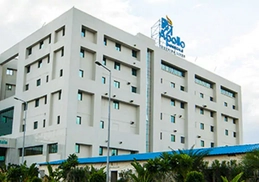
Apollo Chennai
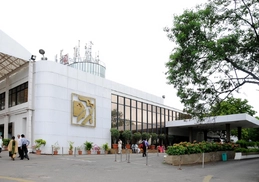
Apollo Health City
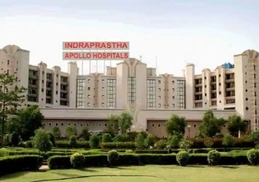
Apollo Indraprastha
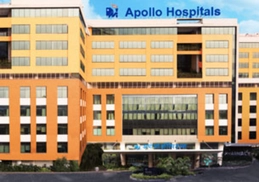
Apollo Mumbai
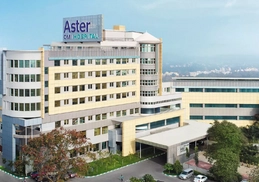
Aster CMI
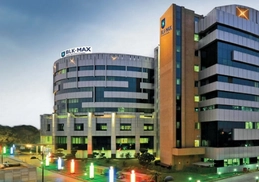
BLK Hospital
Frequently Asked Questions
Is hernia surgery a complicated procedure?
How much does it cost for hernia surgery in India?
Do hernias always need surgery?
Is hernia surgery painful?